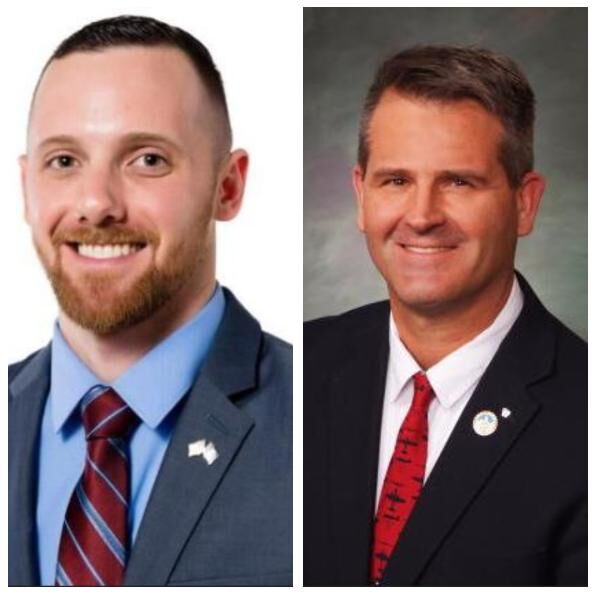Polis administration creates Water Equity Task Force, but lawmakers express concern

Governor Jared Polis and Dan Gibbs, executive director of the Department of Natural Resources announced Friday they would establish a 20-member Water Equity Task Force that would have input into the Colorado Water Plan and to “better understand existing equity, diversity and inclusivity challenges in Colorado water issues.”
According to the Friday announcement, the 20 members geographically represent the nine defined basin regions across Colorado:
- Nine members are described as “water-experienced stakeholders with insights into Colorado’s current water planning efforts and basin roundtable structure”;
- Two members represent Colorado’s federally recognized Native American tribes, the Southern Ute and the Ute Mountain Ute tribes;
- Nine members represent community leaders “not traditionally engaged in water issues.”
The Polis statement claimed the purpose of the task force is to include “a broad and diverse populace who are not always represented in local stakeholder groups and who need to be engaged in the forthcoming Colorado Water Plan update.”
But almost half of the task force are representatives from the state’s nine basin roundtable groups, who have had a seat at the table for the drafting of the water plan since Day One.
The basin roundtables represent Colorado’s eight major rivers, plus a ninth for the Denver area. Each roundtable group has 17 members, representing counties and cities, water providers, water conservancy districts, agriculture, industrial and environmental interests. The roundtables came up with implementation plans that became the foundation for the state water plan.
Who’s missing from the task force? Lawmakers. And they aren’t happy about it.
“To hear about this from a media source shows a total disrespect for the ag committee, the interim water committee and the people we represent in the water world,” state Sen. Don Coram, R-Montrose, told Colorado Politics. “I would hope it was an unfortunate oversight.”
Sen. Jerry Sonnenberg, R-Sterling, simply said, “unbelievable.”
The General Assembly approves the funding for the Colorado Water Conservation Board water projects, including those under the state water plan.
The announcement comes one day after the Senate Agriculture and Natural Resources Committee discussed the role lawmakers do or don’t play on the state water plan and other water issues. The discussion was during a bill on an enterprise solution to pay for future water projects.
Coram pointed out during Thursday’s hearing that every time the administration excludes the voices of lawmakers from discussions on water, they take action.
Most notably, a year prior to the water plan’s rollout in 2015, the General Assembly passed a bill to require statewide hearings on the water plan, conducted by the legislature’s joint Interim Water Resources Review Committee.
Becky Mitchell, director of the Colorado Water Conservation Board, which is in charge of updating the water plan, told Colorado Politics Friday afternoon that lawmakers are already formally required to be involved with the water plan. The language in statute requires the CWCB to present to legislative committees prior to making any amendments to the plan. “They also approve the funding for the update in the projects bill, and received an extensive presentation on the technical update,” she said.
DNR spokesman Chris Arend said there will be opportunities for lawmakers’ input on the task force and the water plan update. “We appreciate legislators’ involvement on these important issues,” he said.
The water plan is slated for a major update in 2022. Since its rollout in 2015, the plan’s biggest problem has been money. Cost estimates have exceeded $30 billion to take care of all the needs identified in the plan, and figuring out where that money would come from has been slow to start.
Most of that $30 billion is expected to come from water providers, to pay for major water projects. But the state’s share, at $3 billion, has never quite materialized. That was supposed to be about $100 million per year for 30 years, beginning in 2020. Even prior to the pandemic, hopes of that $100 million per year have been dashed; both the Hickenlooper and Polis administration have put no more than $10 million per year into the plan, something akin to a drop in the bucket.
One funding source that was expected to boost the water plan’s bottom line, sports gambling, was forecast to raise as much as $29 million per year, but those dollars haven’t yet begun to materialize, since the state has to use gaming revenues to cover $1.7 million in startup costs first.
The Water Equity Task Force will be managed by the Colorado Water Conservation Board and will meet over the next year to draft a set of concepts for consideration in the update.
The announcement said the task force will hold a public workshop later this year “to incorporate additional partners and voices to this effort.”
The task force members are:
- Mel Baker, Southern Ute – Chairman (tribe)
- Barb Biggs, Roxborough Water and Sanitation District (roundtable)
- Lee Bitsóí, Fort Lewis College (community)
- Abby Burk, Audubon of the Rockies (roundtable)
- Sonja Chavez, Upper Gunnison Water Conservancy District (roundtable)
- Deb Daniel, Republican River Water Conservancy District (roundtable)
- Rio de la Vista, Salazar Rio Grande del Norte Center at Adams State University (roundtable)
- Fatuma Emmad, Front Line Farming (community)
- Manuel Heart, Ute Mountain Ute – Chairman (tribe)
- Jerry Hernandez, Integrated Community (community)
- Ernest House, Keystone Policy Center (community)
- Andrea Lopez, Ute Water (community)
- Dr. Alina Luna, Western Colorado University (community)
- Victoria Obregon, CSU Pueblo (community)
- Kelly Romero-Heaney, City of Steamboat Springs (roundtable)
- Mike Roque, Community Foundation of San Luis Valley (community)
- Dr. Lynette Telck, Jackson County Public Health (community)
- Barbara Vazquez, North Platte Roundtable (roundtable)
- Mike Weber, Lower Arkansas Valley Water Conservancy District (roundtable)
- Mely Whiting, Trout Unlimited (roundtable)













